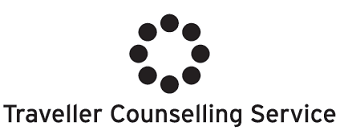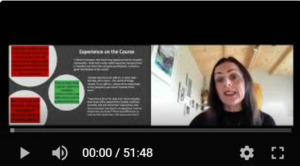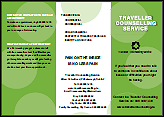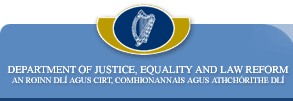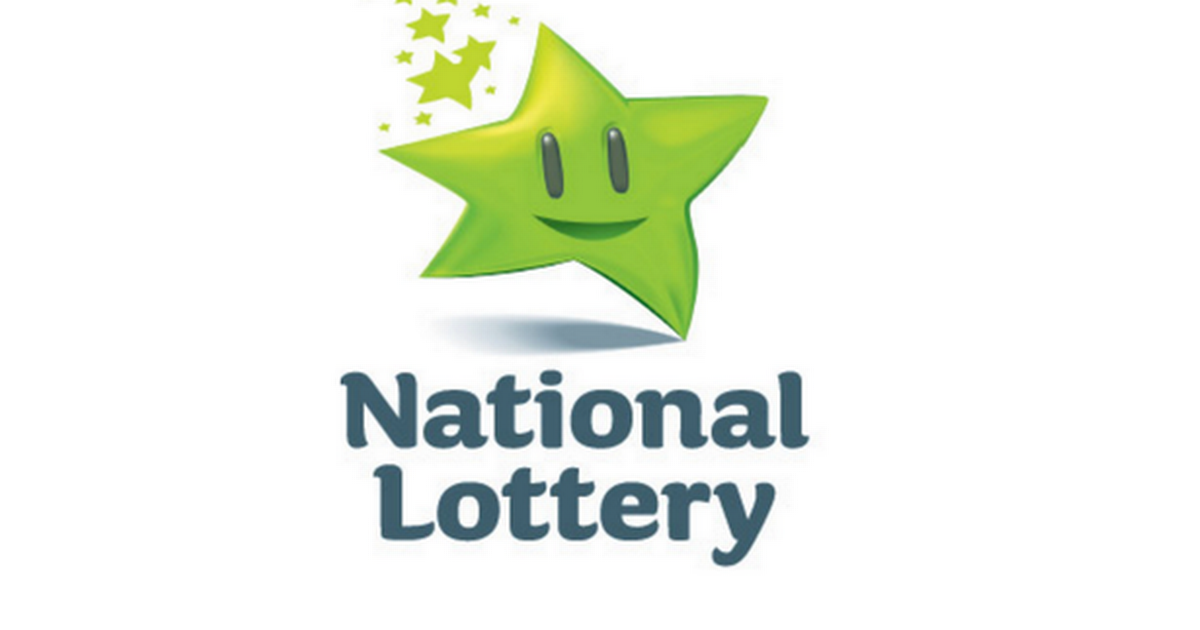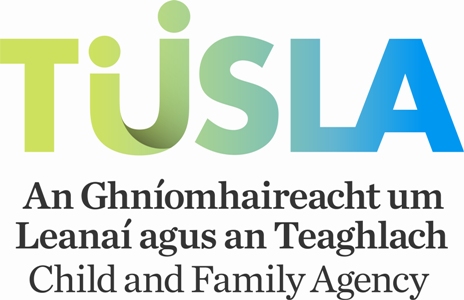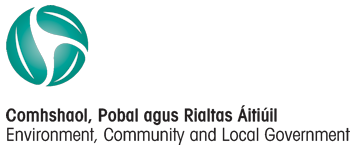Background Report
Background Report
Table of Contents
(Thomas McCann)
Introduction
- Traveller community
- Background
- Need for a culturally appropriate counselling service for Travellers
- What is Culture?
Ethos
Vision
Missionstatement
Strategic Goals
Definition of counselling
Code of Ethics
- What is a code of ethics
- Why is it important to have a code of ethics
- Contents of code
Types of counselling which will be available
- Family Therapy
- Couple counselling
- Addiction counselling
- Individual Counselling
Policies and procedures
- Times when service will be offered
- Who will be able to avail of the service
- Where service will be located
- Fees
- Missed sessions/holidays/breaks
- Making appointments
- Supervision/accountability
- Referrals
- Assessment
- Keeping of records
- Confidentiality
Practice Guidelines
- Family Violence
- Child protection issues
- Child sexual abuse
- Mental health issues, such as suicidal Ideation, self harm
- Complaints procedure
- Bullying
- Sexual harassment
- Substance misuse
Contracts
- Contract with supervisor
- Between the Service and counsellors
- Between service and the Parish office
- Between the client and counsellor
- Between funders and the service
Funding
- Present situation
- Where funding came from
- Bank accounts and signatures
Premises
- Space available
- How space will be used
Advertising
- News letters
- Leaflet
- National media
Management
- Who is on the management committee
- What is expected of committee members
- How often meetings will be held
- Minutes
The network
- The role of the network
- How should the network be maintained
- How often it will meet
- Who can become a member of the network
Strategy of engagement with Travellers
- Visiting sites and group housing schemes
- Engagement with local Traveller groups
- Contact wit GPs and other service providers
Expectations for counsellors who work in the project
- Qualifications and experience
- Understanding of Traveller culture
- Anti racism
- There will be an interview process for counsellors who intend to wok in the service, to ensure clarity, to look at expectation, and address any issues which the service or the counsellor might have.
Administration
- Role
- How often
- Filing system
Evaluation and Monitoring of the Pilot phase
- What type of evaluation or monitoring might be used
- How it will be carried out
- When it will be carried out
- Who will carry out evaluation
Introduction
Background
The Traveller counselling service pilot project is the result of three years work which was carried out by the Traveller counselling support network, this started out as a lose network of individuals who were involved with Travellers or involved in counselling services and were concerned that that there were no counselling services for the Traveller community while at the same time Travellers were not availing of the mainstream services which were available, and the question was why weren’t Travellers availing of such services when there is evidence that there is very high rates of suicide among young Traveller men particularly, that there are large numbers of Travellers on medication for depression anxiety and other difficulties also because of the harsh living conditions and life style Travellers are more likely to die at a younger age so loss and grief has become a common feature of Traveller life and yet there is nothing in place to help Travellers deal with these issues.
One of the key things which has prevented Travellers using other services in the past is the discrimination that Travellers experience when they have tried to avail of services, such as medical services , doctors etc, so the past experience of the Traveller community has been a very negative one along side this Traveller culture has not been respected and is not in general seen as valid so the services that have been available have not taken Traveller culture in to account when developing these services.
The network felt that it would be crucially important to develop a counselling which service would be culturally appropriate or culturally sensitive and would accommodate the needs of Travellers from a Traveller perspective.
One which would take into account the disadvantage and exclusion that Travellers have experienced by the majority community and also be aware of and take into account the values norms and traditions of the Traveller community.
These principles would run right through project starting at management, development and how the service is delivered. The idea being that this is a Traveller service supported by members of the settled community
Traveller community
The Traveller community inIrelandcomprise 0.5 of the population, one third of which live in the greaterDublinarea. Generally Travellers live within the extended family; Travellers have experienced racism, discrimination and have been excluded from mainstream society for generations. Travellers have lower life expectancy, high infant mortality rates, have very poor accommodation, are educationally disadvantaged and experience high levels of poverty, having said this the Traveller community have been very resilient and have managed to struggle against the odds and continue to strive to create the conditions where these issues could be addressed.
Need for a culturally appropriate counselling service
It is recognised now internationally that it is crucial to take culture into account when providing a counselling service to members of a minority or other ethnic group, as the norms, values and traditions of that group will not be the same as the majority group and their experience will be very different. Not to acknowledge this difference could reinforce the discrination inequality and lack of respect which the members of that group have experienced in the wider society
What is Culture?
Culture is a group’s way of life that is passed on from one generation to the next, it is what people make, think, value, and to ensure their existence. It is visible and invisible, it is conscious and unconscious, and it shapes all human behaviour. Culture has many sources and it is not static each generation acts upon it, causing modifications
Ethos
The ethos of the Traveller counselling service is based on a number of principles which include,
- Respect for the dignitary, privacy and the values of the individual client
- The use of best practice principles by the service
- Commitment to ownership of the service resting within the community
- Respect for Traveller culture, values and way of life
- Awareness of the broader political and social issues which impact on the lives of Travellers
- Commitment to developing a partnership with the community in order to address the emotional needs of the Community
- Commitment to sharing the learning from the project with other service providers
- Commitment to working with a broader network of individuals and organisations
- The counselling would be non directive and would be an Integrative approach
- The service would be non denominational
- The service would be anti-racist
- Would be committed to counteracting domestic and other types of violence
- The service is committed to monitoring and evaluating it’s work
Vision
The vision is to create a culturally appropriate Counselling service, where Travellers feel their cultural beliefs and values are respected.
A place where Travellers feel safe to come and talk about emotional difficulties they might be experiencing.
A service which is owned by the community while at the same time respecting each individual and their values and respecting their right to privacy
A service where the community plays a central role both in the management of the service i.e. the board of management and in dialoguing and feedback from the community in shaping how the service should be delivered and in identifying what the emotional needs of the community are
A service which acknowledges the Racism and exclusion which Travellers experience due to their Cultural Identity and the impact of this on Travellers daily lives
A service which will be based on best practice principles
MissionStatement
The mission of the Traveller counselling service is to make this vision a reality
Through establishing a culturally appropriate counselling service which addresses the Emotional and Psychological needs of the Traveller community in the Greater Dublin area
Strategic goals
In order to fulfil our mission there will be a number of strategic goals these will include
- to respond to the psychological and emotional needs of the Traveller community
- to help alleviate the emotional suffering among the community
- to create a space to share the learning and experiences of the Therapists, Management group, clients and others
- to evaluate the pilot project with a view to securing funding for further development of the service
- to capture the learning which emerges from the project and share this with other service providers and interested parties so as to mainstream counselling services to be more accessible to the Traveller community
- to identify the cultural issues which arise during the life time of the project and explore and identify appropriate responses
Under each of these Goals we will have set objectives which will give us a measurable way of evaluating whether or not we are reaching our goals
Goal 1: to respond to the Psychological and Emotional needs of the Traveller community
Objectives:
- to identify the psychological and Emotional needs of the Traveller community
- to raise awareness among the Traveller community in theDublinarea about the Counselling service
- to raise awareness among agencies working with Travellers about the service and encourage them to refer people
Goal 2: to help alleviate the Emotional and Psychological suffering among the community
Objectives:
- to offer Travellers over 18 years of age and their Families an appropriate counselling service that takes account of their culture and values
- to develop a network of supportive agencies to whom people may be referred where appropriate
Goal 3: to create a space to share the learning and experience of the therapist’s management and others
Objectives:
- to maintain and develop the network already established in the developmental phase of the project
- to have a website with relevant links where learning from the project may be disseminated
Goal 4: to evaluate the Pilot project with a view to securing funding for further development of the service
Objectives:
- To identify an appropriate model of Counselling for Travellers following the pilot project
- establish a finance/fund raising sub group of the management committee
- apply for funding to relevant stakeholders and funders
Definition of Counselling and Psychotherapy
Counseling and psychotherapy are activities involving a practitioner, who offers a professional service as a helper, and a client, who seeks the service. The term “client” may include individuals, couples or groups of people. In what follows, the term practitioner is used to denote a counsellor or psychotherapist who is a member of the network
The practitioner offers an impartial relationship in which the client can explore specific issues and develop more satisfying and resourceful ways of living. Confidentiality is recognized as a vital basis for such a relationship. The practitioner respects the client’s values, personal resources and capacity for self-determination. Counseling and psychotherapy are formal activities where both parties explicitly agree a contract about participation and procedure
To ensure that their practice remains effective and appropriate, practitioners are obliged to meet regularly with a supervisor, who is an experienced colleague with whom they review their work. Information discussed during supervision is regarded as confidential
Why people would avail of counseling
People avail of counselling and psychotherapy for many reasons, if they feel they are no longer able to cope and feel they need to look at ways of dealing particular situations better, or if they are experiencing a particular problem and feel they need to talk to some about it in confidence,
Stigma
There can be a very big stigma attached to some one who goes and seeks help particularly help with emotional or psychological issues, people who go for counselling or psychotherapy, whether these are individuals, couples or families, are not mad or crazy, they are ordinary every day people who are trying to manage every living as best as they can and are experiencing difficulties which they feel they need to talk to some one about, we all at some stage experience problems and need to talk to some one about these, this is usually done in an informal way, the difference with counselling is it is done in a formal setting between someone who is trained in counselling and the person experiencing the difficulties.
This stigma can prevent people from seeking help even when the person themselves know they need help and the community knows it, this can be detrimental to the persons well being.
Types of Counselling which will be available
Family therapy
This could include working with the all of the family or members of the family
Addiction counselling
This will be provided to individuals who have been clean and who has been on a detox programme, and who has shown a commitment to wanting to stay off, drugs or drink, the service will not work with individuals who are actively drinking or misusing drugs but will help refer them to the appropriate agencies or groups
– Couple counselling
Couple counselling will be provided to couples who are experiencing difficulties in their relationship and feel they need help in order to deal with these difficulties
– Individual counselling
Individual counselling will be provided to people who feel that they can no longer manage their situation or are feeling depressed anxious or might be experiencing other problems that they feel they need help with
Code of ethics
What are codes of ethics?
Mutually agreed ethics and acceptable standards of practice in any profession
Provide the bedrock whereby those practitioners and clients are safeguarded within a defined framework and agreed boundaries.
In this way the Professional search for integrity and credibility is validated.
It is the mark of a responsible professional body to define its Ethical Principles and Furnish its own Code of Practice for the discipline of members and the welfare of the clients served by these members.
The Need for a Code of Ethics
Whatever the theoretical approach taken by the practitioner, the practitioner/client relationship is usually characterized by inequalities of knowledge and power. To protect the client, and ensure that practitioners remain alert to possible misuse of their greater knowledge and power, they accept the necessity for a code of professional ethics.
The purpose of the Code is to encourage optimum levels of practice, to establish and maintain ethical standards, and to inform and protect those who seek and use the services of practitioners. All members must agree to adhere to the provisions of the Code. The Traveller counseling service has a Complaints procedure which responds to and deals with complaints. The Code applies to practioners professional activities, and any behavior that might impinge on those.
To ensure that they behave in an ethical manner, practitioners are required to use a formal procedure in examining ethical aspects of their work. In situations where ethical decisions can be complex and difficult and different ethical principles may be in conflict, the best decision comes from considering issues systematically.
Like all other citizens, practitioners are subject to the law, and their practice must conform to the law.
.
CONTENT OF THE CODE
The Code is based on four overall ethical principles, under which specific ethical standards are elaborated in greater detail.
Principle 1: Respect for the rights and dignity of the client.
Practitioners are required to treat their clients as persons of intrinsic worth with a right to determine their own priorities, to respect clients’ dignity and to give due regard to their moral and cultural values. Practitioners take care not to intrude inappropriately on clients’ privacy. They treat as confidential all information obtained in the course of their work. As far as possible, they ensure that clients understand and consent to whatever professional action they propose.
Principle 2: Competence.
Practitioners are required to monitor and develop their professional skills and ethical awareness on an ongoing basis. They recognize that their expertise and capacity for work are limited, and take care not to exceed the limits.
Principle 3: Responsibility.
In their professional activities, practitioners are required to act in a trustworthy and reputable manner towards clients and the community. They refer clients to colleagues and other professionals, as appropriate, to ensure the best service to clients. They act appropriately to resolve ethical dilemmas and conflicts of interest.
Principle 4. Integrity.
Practitioners take steps to manage personal stress, maintain their own mental health, and ensure that their work is professionally supervised. They are required to be honest and accurate about their qualifications and the effectiveness of the services which they offer. They treat others in a fair, open and straightforward manner, honour professional commitments, and act to clarify any confusion about their role or responsibilities. They do not use the professional relationship to exploit clients and they deal appropriately with personal conflicts of interest. They take action against harmful or unethical behavior in colleagues.
Policies and Procedures
Who the service will be available to
The service will be available to all members of the Traveller community who are over the age of 18 years; the exception to this rule will be where a family come together for counselling and have children with them who are under 18 years.
Counselling will be available to people who have problems with alcohol and drugs but the service will only see clients who have gone through a detox program and is not actively engaging in substance misuse, people will be seen who are on a maintaince programme or are on prescribed medication.
When and where the service will be available
The service will be available two days per week and maybe one morning on the weekend. The times of the service will be during the week from2pmto7pmand on the weekend10am to 2pm. The likely days will be Thursday? Friday / Saturday?
Making appointments
To make an appointment, there will be a phone number available which people can ring and leave their contact details and an appointed person from the service will get back to them within 48 hours after which an appointment time will be agreed between the service and the client for an initial interview.
Initial Interview/assessment
The aim of the initial interview/assessment is to decide whether or not to offer counselling to the client. To gain an understanding of what the problem is from the client’s perspective, to explore whether or not the client is in a position to benefit from the service being offered, to get an understanding of the clients background, social and family life, to asses if the client is at risk of suicide or other risk and what is the level of this risk, What type of intervention might be needed and which counsellor might be right for this client. Is the client motivated to change? It also gives the client to the opportunity to asses the counsellor or service and ask questions.
Some of the things that the counsellor might need to know in the initial interview in order to make a decision on whether or not the service is suitable for the client.
Name and address
Telephone number, date of birth, work, family/household
Doctor’s name and telephone number
Clients reason for coming-the problem-or why referred.
Their main concerns
Their understanding of the problem, what it means to them
Who or what is responsible for it?
How long has it been a problem?
Previous interventions, approaches and their outcomes
Why now?
Do they want to here?
Are they interested in counselling?
Is there some thing they want to change?
Hopes of counselling, goals
Client’s health, physical and mental, use of medication
Substance abuse
Eating
Where there is an element of risk, what is it? Will the client give permission to liaise with others?
Relationships
Emotional state
Behaviour problems
Supports
Strengths, what things is the client good at? Successes? Times when things were better?
Are they prepared to work hard at making the changes?
What do they need to know about counselling?
Will they be able to attend regularly?
Are they interested in the counselling that is available?
Are they willing to contract for a number of sessions?
- Referral to an other agency or organisation
After an initial interview takes place if it is felt that the client needs other help and that the service is not in position to provide this help to the client then the client will be referred to the appropriate organisation or agency and every assistance will be offered to the client to ensure that the client engages with the appropriate service.
Referrals
There are two types of referral, these are
- Referrals to the Traveller counselling service
- self referral
- Referrals by other agencies or professionals
Effective counselling requires a high degree of motivation, which involves both keeping appointments and cooperating with the process of working to gain insight or to solve personal problems. The experience of some counselling agencies is that clients who are referred by third parties, such as relatives or professional workers are less likely to commit themselves to the possibility of change through counselling, the onus therefore should be placed on clients themselves to make appointments and to keep or cancel them and communicate back, if they wish to anyone who encouraged them to refer themselves. What this means in practice is that people who phone on behalf of some one, whether this is a relative or professional, they could be asked to encourage that person to make his or her own appointment.
Fees
The service will be free, however if clients are in a position to make a small donation this will be encouraged or an organisation that is referring a client might make a contribution towards the cost of counselling for the clients
Premises
Space available
The space which will be available to the Counselling service will be the two large rooms down stairs the canteen the toilet and the small office upstairs all other rooms in the building will be locked and the alarm will be activated for these rooms,
How the space will be used
when a client comes for counselling they will be met by the counsellor which will be working with them and when they are finished they will be left to the door by the counsellor, if people come early they will be asked to come back at the agreed time, there should be at least ten to 15 minutes between the time the counsellor finishes with one client and starts a session with an other, if there is someone who accompanies the client they will be asked to call back for the client, this should all be explained to the client when they come for an initial interview. Counsellors should ensure that sessions finish on time so as there is not some one kept waiting.
As there is only one entrance and exit door seeing clients might be staggered so as people do not meet one other for example one client might start a session at2pmand the next client who would be seen by another counsellor would be2:10pm
Tea and coffee will not be available as this would mean that people would be waiting around the premises and also that some one would have to be available to see to these people and the fact that we do not have awaiting area and the concerns expressed regarding people wanting to keep their business private.
Missed sessions
Counselling needs to be conducted on a week to week basis and if there are too many or very long breaks this can interfere with and undermine the therapeutic process, where clients are missing session on an ongoing basis this issues will need to be addressed by the counsellor and the client. The space for a client will only be held for a limited a number of sessions where the client has failed to turn up unless there is a good reason to do other wise
Client records
There are a number of key issues which have to be considered with regard to keeping client records. These are
- Security
These include where client files are kept. If clients can be identified from the notes or if there will be a code system in place
- Access
Who will have access to client files and when this access will be available?
- Use of records
What are client files used for?
- Contents
What should be contained in client files?
- Format
Should there be one format for all client files?
- How long records should be held for
How long should client files be kept for before they are destroyed?
Confidentiality
Confidentiality is considered to be fundamental to counselling, because by its very nature, counselling is an intimate relationship which often involves the client divulging information about their current and past situation, as well as their opinions and inner most feelings. This can only take place in a relationship based on trust.
In particular a client needs to feel that what ever has been disclosed will not be used in ways that will harm them. This usually means that disclosures in counselling are made by clients on the assumption that what is said remains confidential between the counsellor and the client.
But there will be limits to this confidentiality and these limits need to be identified and explained to a client who is going to avail of the service. For example under the law the service might be required to break this confidentiality or where there is a serious risk to the client themselves or to a third party and in particular a child or when clients issues are discussed in supervision.
Any decision to disclose information should be guided by certain principles
- Any disclosures should be in the clients best interest
- Disclosures should only be on a need to know basis
- Any disclosures consistent with the purpose for which the client originally conveyed the information.
The principle of respect for client autonomy provides a basis for emphasizing the importance of client consent in decisions about confidentiality.
The identity of the clients who avail of the service will be kept confidential the counsellor who is working with the client and the person who does the initial assessment unless there are circumstances where this is unavoidable
Counselling supervision
Counselling supervision refers to a formal arrangement that enables counsellors to discuss their counselling regularly with one or more people who are normally experienced as counselling practitioners and have an understanding of counselling supervision. Its purpose is to ensure the efficacy of the counsellor/client relationship. It is a confidential relationship.
Sometimes confusion can arise between counselling-supervision and accountability to management.
Clients come first to an agency and only then to the individual counsellor and the agency needs to be sure that the work that is carried out in its name is up to standard. The contract between the agency and the supervisor should make it clear the supervisors responsibility for ensuring that the clients are getting a good enough service, that counsellors are not straying beyond the limits of agency practice and that the agency is not misusing it’s counsellors.
There are three broad themes which require consideration of supervision within an agency. These are
- Accountability to the agency
- Issues arising from the work with the client
- Personal support for the counsellor
The first of these issues need to be the subject of discussion within the management of the organisation, where as the other issues could be the agreed between counsellors and supervisor. Supervision should take place on a regular basis.
There is also another element to this and that is that we are trying to establish a culturally appropriate or culturally sensitive counselling service so this would mean adding this dimension to the supervision or having a separate space where cultural issues identified and explored.
Practice guidelines;
Child protection guidelines
Even though the Traveller counselling service will might not be working directly with children, there could be times when the safety of children is at risk or when work is being done with a family. The children first national guidelines for the protection and welfare of children, September 1999, Department of Health and Children is the key guide on how organisations or individuals should deal with suspected child abuse.
What is child abuse?
Child abuse can be categorised into four different types: neglect, emotional abuse, physical abuse and sexual abuse.
Responsibility to report child abuse
A person working in the Traveller counselling service who knows or suspects that a child has or is being harmed, or is at risk of harm, has a duty to convey this concern to the designated person in the Traveller counselling service, the manager in turn has a responsibility to ensure that the health board is informed.
Ignoring the signals or failing to intervene may result in on going or further harm to the child or young person, and leave the staff member and organisation itself legally liable.
The rule of thumb as to whether or not to report a suspected case of abuse is having reasonable grounds, supported by indicators, for the suspicion. A suspicion not supported by any objective indication of abuse or neglect would not constitute reasonable suspicion.
Family Violence
The Traveller counselling service is committed to preventing and stopping violence in all it’s forms, whether this is domestic, family, inter family or individual violence, in order to implement this the service needs to ensure that there is safety in the process for people who engage with the service, without fear or treat, this could include the use of practice guide lines for individual counsellors working with clients, for example a contract that commits client to stop being violent and a commitment to finding other ways to deal with the issue.
Suicide
I have included this heading particularly around the issue of suicide. The reason being that suicide has become a very big problem for the Traveller community over the last few years.
Thinking about suicide is not uncommon or pathological and talking about suicide does not increase the likelihood of a client taking action. Rather it enables the client to express and feel heard for the desperation they are experiencing.
The counsellors first duty of care is create a safe space in which the client can explore what suicide may mean for them while sensitively assessing the level of intent.
Ultimately the responsibility for deciding whether or not to break confidentiality rests with the counsellor who must use their judgement according to all the circumstances of the case. It requires maintaining a delicate balance between on the one hand over reacting and risking the fidelity of the therapeutic relationship and on the other hand denying the seriousness or extent of the client’s intent and sense of meaningless or hopelessness.
A risk assessment might include;
– Suicidal intentions:
Strength of feelings about going on or ending it all; the degree of planning and preparation already accomplished
– Mental state: previous history of mental illness and attempted suicide;
Current emotional mood
– Calcification of current difficulties and resources for coping:
Exploration of current problems and ways of resolving these; possible sources of acceptable support from other people and agencies; previous strategies for coping with problems
– Risk factors:
Alcohol or substance abuse, bullying, pending court case, being in custody, experience of physical or sexual abuse, social isolation
Sexual Harassment/Bullying
Work place Bullying is repeated inappropriate behaviour, direct or indirect, whether verbal, physical or otherwise, conducted by one or more persons against an other or others, at the place of work or in the course of their work, which could reasonably be regarded as undermining the individuals right to dignity at work.
In essence, Bullying is unwanted behaviour of a physical or verbal nature which unfairly discriminates, humiliates, embarrasses, or intimidates a person working on behalf of the service or results in that person feeling threatened, offended or compromised in any way.
Sexual Harassment
Sexual harassment means conduct towards an other person which is sexual in nature or which has a sexual dimension and is unwelcome to the recipient.
Examples of sexual harassment include;
Requests or demands for sexual favours, suggestive remarks, degrading abuse or insults, jokes or tricks of a sexual nature.
Gesturing of a sexual nature, unnecessary touching, indecent exposure and actual assault up to rape.
Display pornographic or sexually insulting material in the work place
The service will adopt and have in place a number of policies, such as sexual harassment and Bullying, (see appendix)
Grievance procedure
In the first instance, any grievance a person ahs should be raised with your immediate supervisor or manager, you may be requested to put your grievance in writing, you will have written response from your immediate supervisor or manager within ten working days, if the issue cannot be resolved at this level you may then proceed to discuss the grievance with senior management of the service, it is expected that you will have a written response to your grievance within 21 working days, this time limit maybe extended with the agreement of all parties.
If agreement can not be reached internally the grievance shall be referred through the normal industrial relations procedures, this could include a rights commissioner, the labour relations commission, the labour court, the employment appeals tribunal or equality officer. At all stages in the process you may be accompanied by a colleague or trade union representative if you so wish.
Disciplinary procedure
The disciplinary procedure sets out the action taken by management when disciplining a person working on behalf of the organisation.
Informal once off verbal warnings for minor issues are not part of the formal disciplinary code.
Formal verbal warnings shall be issued by the manager of the service; the formal verbal warnings shall be recorded in a person’s personal file.
Normally two verbal warnings would be issued, followed by a written warning, in the case of persistent concerns about work performance or breaches of a contract.
Ultimately, persistent breaches of conduct or inadequate work performance or gross misconduct can lead to suspension or dismissal, including immediate dismissal.
The manager of the service, following consultation with the management committee has the right to suspend a person working on behalf of the organisation, in such circumstances this decision will be notified to that person within 48 hours
Contracts
There are a number of contracts between different parties (please see attachments)
These are contracts between counsellors and the Traveller counselling service.
Contracts between the parish and the Traveller counselling service
Contract between client and counsellor
Contracts between the supervisor and the service
Funding
At present we have €000 in the account this funding comes from a number of different sources, including the following.
Dept of Justice Equality and Law reform €23.000
St Stevens Green trust €8.000
Social EntrepreneursIreland€5.000
Cross care €3.000
The Parish of the Travelling People €4.500.
Total €43.500
We have submitted an application to the Traveller health unit of HSE for €25.000, if we get this money it will take us up to €68.500.
At present the signatures on the bank accounts are Fr Steven Monahan, Ciareen Bryson, and Fr Derek Farrell, We need to look at this as Steven is leaving the Parish
Advertising
There is a need to advertise what the Traveller counselling service is, who is involved and what it is offering. There are also different audiences, such as the general public, funders, service providers and the Traveller community.
- Traveller community
- The Traveller community is the primary audience and it is crucial that the community knows of the service and begins to become familiar with it. There area number of ways of getting the message out to the Traveller community, such as the development of cards and a leaflet, having an article or a serious of articles on the issue of mental health in the voice of the Traveller magazine, local groups news letters. Maybe doing a poster on Traveller mental health.
- Funders
- A report to key funders outlining the development which has taken place and the gaps that exist.
- A letter or email to other service providers outlining what we are about and what we are offering
- General public
- Press release on mental health issues affecting the Traveller community and then outlining what we trying to do.
- We could also consider launching the service when we are ready to go and invite the media to the launch.
Management
The management committee has been established to oversee the management of the project over the life of the pilot and beyond, the role of the management is to ensure that the project is run on a professional basis, that there is accountability and also to guide the project to achieve its aims and objectives and the realisation of the vision which is set for itself. Part of this vision is to establish a culturally appropriate counselling service for the Traveller community which is a Traveller project supported by settled people. As part of this it was felt that at least two thirds of the management committee should be Travellers. A number of people were identified who it was felt would be good to have on the management, the task of getting these people was handed over to Thomas McCann as part of his work on behalf of the management.
The Network
It is important that we continue to develop the network as this allows us to invite people to be part of the counselling network but who do not have to be part of the management. It is also a good way of getting feed back from people and letting people know what is happening. Another key factor is that if people in the network wanted to look at other issues relating to counselling and Travellers there is no reason why this could not happen, for example what supports do people need if they are engaged in counselling work with Travellers? Or there might be other areas such as maybe exploring the idea of a training course in counselling for workers on primary health care projects and what would this entail? These are just ideas. But we need to look at how often the network will meet and its role.
Strategy of engagement with Travellers
There will be a need for engagement with the community when the service is ready to be launched; this could happen at a number of different levels,
– direct engagement with the community
This could take the form of leafleting sites or doing a number of talks on sites where there are facilitates to do this, these could include talks on issues such as depression, anxiety, drug or alcohol addiction or suicide. This could also be an opportunity to explore with the community what ways they would like to see such a service operating and what issues it should be addressing, also to look at what might prevent people from using the service.
– engagement through local groups
This could take the form of inviting people from the community to evenings or afternoons which would be organised in conjunction with the local groups on the key issues that they feel need to be addressed around the mental health needs of the community.
– engagement trough other service providers
this could take the form of letter being sent to GPs and other service providers who engage with the Traveller community, explaining what we are about and what we are trying to do and if necessary meeting with key service providers, such as public health nurses, psychiatric services etc. this should begin to start as soon as we have a date to launch and contact details in place.
What will be expected of counsellors who work for the project
Counsellors who are contracted to work in the Traveller counselling service will be expected to hold a professional qualification in counselling or psychotherapy and who would be accredited or in the process of seeking accreditation they would also be expected to make a commitment for the life of the pilot project.
There would be an expectation that the counsellors would have a commitment to developing a culturally appropriate service for Travellers and that they would have an awareness of racism and discrimination and how this impacts on the clients who might use the service,
Administration
There will be a need to have a person on a one or two half days day per week who would do administration work for the project, the could include looking after the book keeping, bank accounts, receipts, wages, expenses, taking inquires, writing up reports, minutes for meetings developing a data base, making appointments for people. Contacting agencies or organisations, giving information,
Evaluation and Monitoring of the project
One of the key things which the Traveller counselling service has committed itself to is the monitoring and evaluation of the pilot phase. There are a number of reasons for this, in order to develop a culturally appropriate counselling service for Travellers it is important to recognise and understand what the cultural issues are which arise at every level of the service and there is some way of capturing these issues and exploring them, it is also very important to explore what issues clients are presenting with how counsellors are engaging with clients around these issues and that we are able to reflect on interventions with clients and what the outcomes were.
We also need to be able to evaluate what is working and what is not working,
An important part of this would be what we mean by success? Or that we have some thing to measure it against. It will be very important how we do this monitoring and evaluation, who will be involved? Clients? Management? Counsellors? Other service providers? Traveller organisations? The community themselves.
How it will be carried out, for example questioner’s group sessions?
What information will be looked for?
It is important that we are very clear about this as there can be problems in maintaining confidentiality.
It is likely that it will be an external person who carries out this monitoring and evaluation
